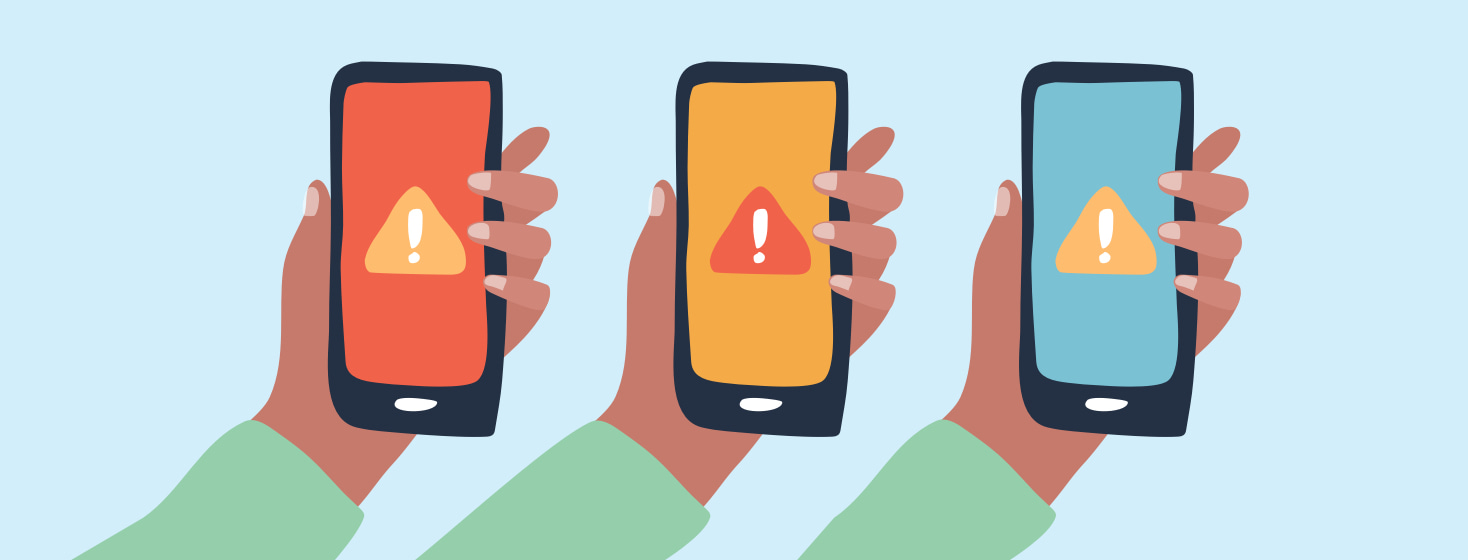3 Big Cautions for Patients
We were lying in bed one evening recently, watching an episode of Next Level Chef starring Gordon Ramsay. My wife was reading something on her phone at the same time. I could feel the mood change instantly, from light and relaxed to heavy and tense. I didn't look over at her, but I knew tears were welling up in her eyes. I knew what she was doing. She was doing something we'd agreed she would not do.
"What are you reading?" I asked, already knowing the answer.
My wife didn't answer.
Reading scan results
I looked at her phone, and my suspicions were confirmed. She was reading the results from her brain MRI a few days ago.
I gently grabbed the phone from her shaky hands. I'm pretty well-educated, with several degrees, and I know that each field or specialization has its own unique language, foreign to outsiders. My background in philosophy and theology includes highly specialized terms, phrases, and conceptual histories. Medical geeks are no different, probably worse. Most technical medical reports read like a foreign language to even me.
3 cautions for people with cancer
In this article, I will share 3 major cautions people with metastatic breast cancer (and their family and friends) should be aware of to reduce fear, anxiety, or confusion.
Refrain from interpreting medical results
Unless you have an "M.D." after your name, I don't recommend reading results from your scans BEFORE you have a chance to talk about it with your doctor.
Even if you do have an "M.D." after your name, you may still not be qualified to accurately read and interpret certain scan results, which are really the special province of a radiation oncologist, for example.
Dealing with scanxiety
My poor wife goes through the dreaded scanxiety every 3 months as she undergoes her routine CT and MRI scans. I can't even imagine that level of anxiety before and then after waiting for the results. But it's happened enough times that she will read her results BEFORE talking with her doctor, and she completely misreads something and thinks the end is near.
Then, when we see her oncologist and the doctor reassures us that everything is normal, we realize once again the mistake we made. So, some time ago, we agreed she would not read or interpret medical results before talking about them with her doctor.
Obviously, she doesn't always follow this rule, but it's proven true enough times that she knows it's wise.
My advice is to wait to talk about it with your doctor, but if you're jumping out of your skin to know your results immediately, pick up the phone and call your doctor or the office and schedule a video appointment.
Don't use the internet to diagnose yourself
Another big caution is using a website like WebMD or, worse, artificial intelligence (AI) like ChatGPT to diagnose yourself. Who in the world would do that? You ask. Uh, like millions of people, including my wife.
Thankfully, she is better at following this rule, but there were times in the past when she would feel some new pain or symptom, and she'd look it up on WebMD. Then what do you know, she's dying!
Trying to diagnose yourself with tools online is probably even more self-destructive than trying to read your medical reports and results. For example, you may simply be experiencing acid reflux, yet your internet search can have you convinced that your cancer has spread and the clouds of despair now live over your head 24/7.
I'm not saying never to use these online resources, but if you do use them to narrow down a possible cause for a symptom, hold the possible causes loosely until you can cross-check everything with your doctor.
Limit time on social media
Over the last few weeks, I've noticed my sweet wife spending too much time scrolling social media, particularly Facebook.
Most of us know this is unhealthy for many reasons. If it creates more anxiety and depression in healthy people, how much more for those who have cancer?
The social media facade
I read a book years ago titled The Law of Happiness by Dr. Henry Cloud. A chapter stuck with me, and it was about how happy people don't compare themselves to others. Do you know what unhappy people do? They're constantly comparing their lives to the lives of other people!
There is a term called "the social media facade," and you already know how it works. Most people only post pictures and write blurbs about the amazing times in their lives. This creates a false impression that everyone is living these awesome stellar lives, except for us! It can create feelings of inferiority, insecurity, jealousy, envy, and eventually, sadness and depression.
My recommendation: Get off your phone and get outside! When did you last sit outside in the sun for a while? I put a sticky note on our counter that says, "Get Outside." Yesterday, my wife spent half the day outside with the dogs gardening. And guess what? She loved it. She felt like she accomplished something and was in a great mood!
Amidst health challenges, avoiding these pitfalls can help foster peace of mind and emotional well-being when living with metastatic breast cancer.

Join the conversation